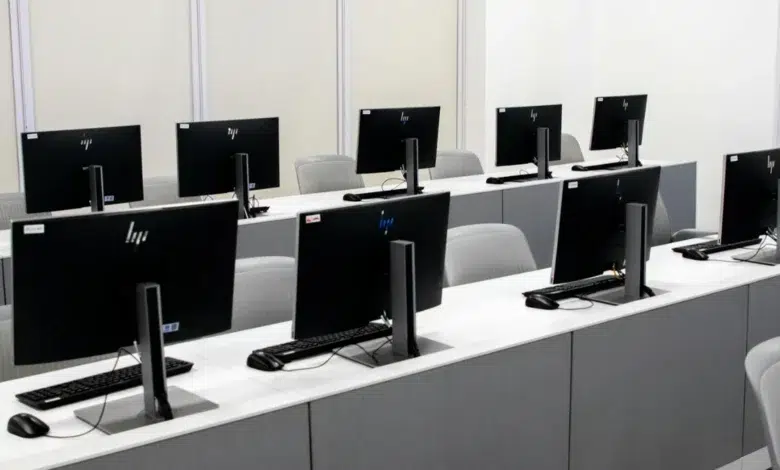Gauteng Schools Struggle to Teach Tech Skills Amid Teacher Shortage

Gauteng schools are facing significant challenges in teaching technology skills due to a persistent teacher shortage of qualified educators. As South Africa pushes to equip learners with digital competencies, addressing the shortfall in teachers is crucial to avoiding the undermining of efforts to prepare students for the modern economy.

ALSO READ: Gauteng Department of Education Job Opportunities – Apply Now!
The Growing Importance of Technology Education
Technology education is increasingly vital in today’s digital world. Skills in coding, robotics, and information technology are essential for learners to compete globally, which is challenging amidst the shortage of teachers. Gauteng, South Africa’s economic hub, has prioritised integrating technology into school curricula to bridge the digital divide and foster innovation.
Teacher Shortage Hampers Progress
Despite these ambitions, many Gauteng schools report a shortage of teachers qualified to deliver technology subjects. According to recent data from the Gauteng Department of Education, vacancies in computer science and information technology teaching posts remain high. A key issue is a shortage that is more acute in township and rural schools, where recruitment and retention of skilled educators are particularly difficult.
The lack of qualified teachers results in large class sizes, limited practical lessons, and reduced learner engagement. Some schools have had to combine technology classes or rely on teachers without formal training in the subject, affecting the quality of education, which is impacted by the teacher shortage.
CHECK OUT: Tech Safety: Cyberbullying and Online Security for Gauteng Students
Contributing Factors to the Shortage
Several factors contribute to the teacher shortage in technology subjects:
- Limited Training Opportunities: Few teacher training institutions offer specialised courses in technology education, contributing to the teacher shortage problem.
- Low Incentives: Technology teachers often receive lower salaries compared to private sector opportunities, leading to high attrition rates and worsening the teacher shortage.
- Resource Constraints: Many schools lack adequate computer labs, software, and internet connectivity, discouraging teachers from specialising in technology.
- Urban-Rural Divide: Skilled teachers prefer urban schools, leaving rural areas underserved, thereby exacerbating the teacher shortage.
Government and Stakeholder Initiatives
The Gauteng Department of Education has acknowledged the challenge and is implementing strategies to address it. These include:
- Upskilling Existing Teachers: Providing in-service training and workshops to equip current teachers with technology skills.
- Partnerships with Private Sector: Collaborating with tech companies to offer mentorship, resources, and training programmes.
- Infrastructure Investment: Upgrading computer labs and improving internet access in schools.
- Incentive Programmes: Offering bonuses and career development opportunities to attract and retain technology teachers, helping to solve some aspects of the teacher shortage.
RELEVANT ARTICLE: Tech in the Classroom: AI and E-Learning Trends in Gauteng Schools
The Role of Digital Literacy Programmes
Several non-governmental organisations and private initiatives have launched digital literacy programmes targeting learners and teachers. These programmes aim to supplement formal education and provide practical experience in coding, robotics, despite the challenges posed by the shortage affecting Gauteng schools.
Impact on Learners and the Future Workforce
The shortage of technology teachers limits learners’ exposure to essential digital skills. This gap risks leaving many students unprepared for tertiary education and the evolving job market, which increasingly demands tech-savvy graduates. The impact of the teacher shortage on learners is substantial.
Experts warn that without urgent intervention, South Africa’s ambitions to become a knowledge economy could be compromised. Gauteng’s schools must overcome these teacher shortage challenges to ensure equitable access to quality technology education.
Addressing the shortage of qualified technology teachers in Gauteng is critical for the province’s educational and economic future. Coordinated efforts from government, education institutions, the private sector, and communities are necessary to build capacity, improve resources, and inspire learners. Only then can Gauteng’s schools fully equip students with the skills needed in the 21st century, overcoming the prevalent teacher shortage.




